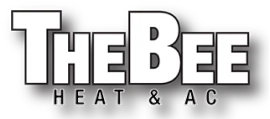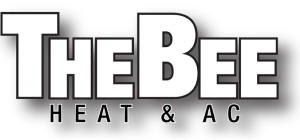Air conditioners have become a staple in American homes and businesses, with more than 90 percent of both using AC to get through the hot summer months. In fact, 6 percent of all electricity used in America goes toward running air conditioners, according to the U.S. Department of Energy. Despite this overwhelming presence, many homeowners make common mistakes when it comes to maintaining their AC system – whether it’s central air, a window unit, or ductless mini-splits – which wastes energy and money while shortening the lifespan of their investment.
On This Article
hide
1)
1. Ceiling fans help circulate air, making a room feel cooler.
2)
2. Plant large shade trees around your house.
3)
3. Consider installing a smart thermostat to save on energy costs
4)
4. The position of your thermostat can have a big impact
5)
5. Consider your basement
6)
6. Make sure to seal off any potential leaks in your home.
7)
7. Get your AC serviced at least once a year
8)
8. Avoid putting your AC unit in direct sunlight, as this can cause it to overheat.
9)
9. If you don’t clean your filter, your air conditioner will have to work harder – and use more energy – to cool your home.
10)
10. Avoiding professional help
1. Ceiling fans help circulate air, making a room feel cooler.
If you’re looking for a way to make your room cooler without necessarily decreasing the air temperature, consider ceiling fans. They are an excellent addition that can help circulate cool air and increase your comfort. Additionally, by running both an efficient air conditioner along with ceiling fans, you can raise the thermostat by four degrees without losing any comfort.
Not only can ceiling fans help make your home feel cooler, but they can actually lower air conditioning costs. The average cost of running a ceiling fan is $0.01 per hour (depending on speed and if it uses lights), whereas the average cost for running central air units is about $0.36 per hour – that’s quite a difference!
2. Plant large shade trees around your house.
You can decrease your dependence on air conditioning and lower your utility bills by reducing the amount of sunlight that enters your home. Planting trees to shade your home is one way to do this, and according to the U.S. Department of Energy, it can increase AC efficiency by up to 10 percent. Some good options for fast-growing shade trees are red maple trees and river birch trees.
3. Consider installing a smart thermostat to save on energy costs
Many people are now upgrading to smart thermostats. Smart thermostats offer features such as the ability to save money by turning off your AC while you’re away from home. You can also usually adjust the settings on many smart thermostats remotely using an app or voice commands if you have smart home devices.
4. The position of your thermostat can have a big impact
When replacing an old thermostat with a new, smarter one, be sure to also check the placement of the device. The location of your thermostat can have a big impact on how often your HVAC system turns on or off. If the thermostat is close to a heat source like a window, it will give false readings and cause your air conditioner to work overtime.
5. Consider your basement
Did you know that cold air is heavier than warm air? It’s true! Cold air will sink to the lowest level in your home and stop. So, if you have a basement, go downstairs during the hottest part of the day. This way, you can save energy by not running your AC as often.
Furthermore, think about closing any vents leading to the basement. Since basements are already cooler temperature-wise, there’s no need to open up air vents or dampers to let in more cold air from your AC unit upstairs.
6. Make sure to seal off any potential leaks in your home.
If your home has cracks and openings in windows and doors, it’s not energy-efficient. Air leaks in and out of your house, which causes an increase in your utility bills. The best way to check for these leaks is to hire a technician to do an energy audit of your entire home. Doing this will help you determine what needs to be fixed so that your home is more efficient.
7. Get your AC serviced at least once a year
As the weather gets hotter, have you been making more service calls for air conditioning repair? Don’t wait until your air conditioner breaks down to call for maintenance–regular tune-ups will help keep your system running efficiently and save you money on cooling costs. If it’s been a while since your AC was serviced, schedule a preventive appointment now so you don’t find yourself in an unpleasant situation when the temperature really starts to rise.
8. Avoid putting your AC unit in direct sunlight, as this can cause it to overheat.
Although homeowners may not find air conditioners the most attractive item in their landscape, they shouldn’t try to hide them in an unattractive spot. The location of where you place your air conditioner has a significant impact on its energy efficiency. Try installing it in a shady spot on the east or north side of your house—too much direct sunlight will make the system work harder. Additionally, don’t place shrubs or plants too close to the unit which would impede ventilation and possibly clog condenser coils.
9. If you don’t clean your filter, your air conditioner will have to work harder – and use more energy – to cool your home.
During the cooling season, ensure you clean or replace air filters every month–or more frequently if it seems as though the filter is packed with dust and debris. If you keep your air conditioner’s filter clean, it will increase its efficiency by 5 to 15 percent, allowing you to save on energy consumption. Generally, central air conditioners have their filters located on return ducts in ceilings or walls. The air filter for room air conditioners is placed in the grille at the front, while ductless mini-splits keep their reusable filters in a removable panel. How often to change your AC’s filter depend on several factors–for more info, check your owner’s manual.
10. Avoiding professional help
Many air-conditioning system problems, such as refrigerant leaks, can only be detected and fixed by a professional HVAC technician. Having a routine inspection and tuning from a pro will save you money in the long run rather than waiting for an emergency repair.

